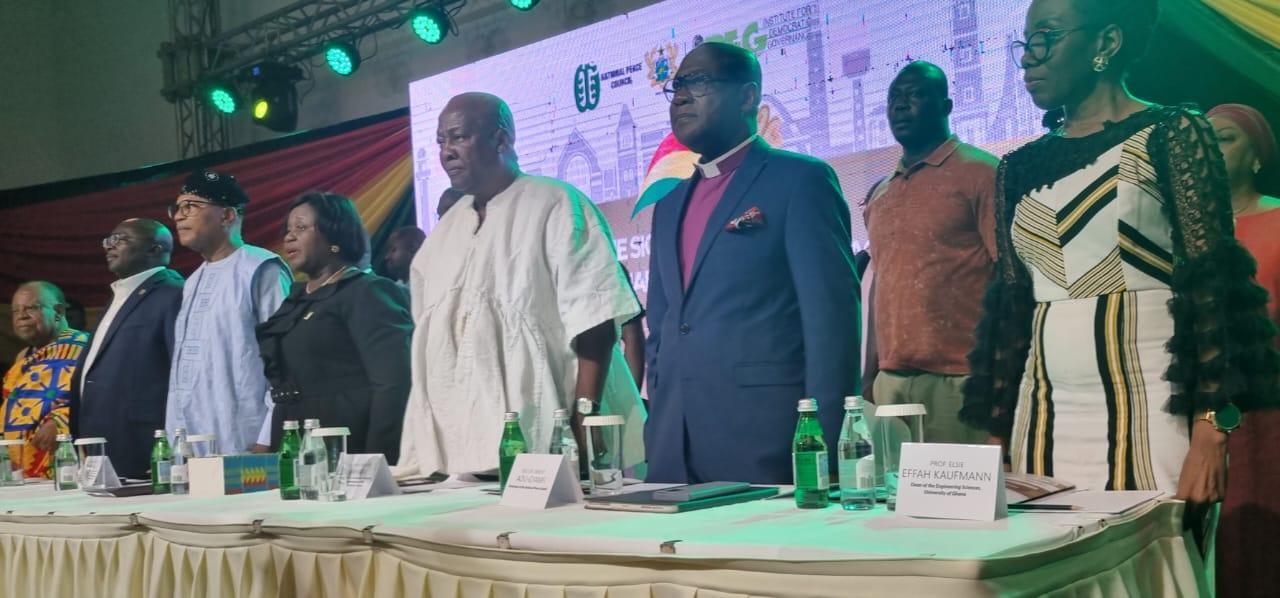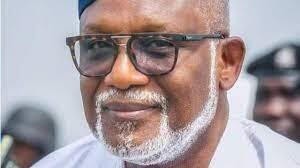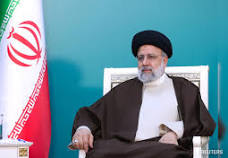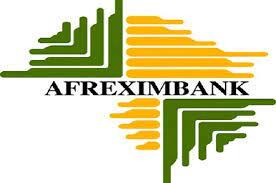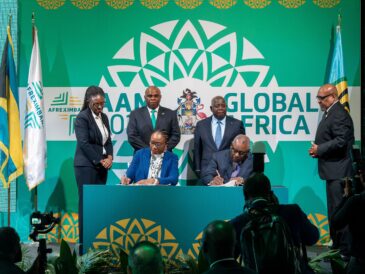Accra, Nov. 29, 2024 – The twelve (12) candidates vying for the presidency in Ghana’s 7 December General Elections, have signed a Peace Pact committing to a violence-free electoral process and to use legal means to resolve any disputes that might arise from the poll.
The highlight of the ceremony on Thursday, Nov. 28, at the Kempinski Hotel, Accra, was the signing of the peace document by the two frontrunners, former President John Mahama, presidential candidate of the opposition NDC and out-going Vice-President Mahamudu Bawumia, the flag-bearer of the ruling NPP.
The Inspector General of Police (IGP), Dr George Akufo Dampare, the Rev Dr Ernest Adu-Gyamfi Chairman, of the National Peace Council (NPC), which mid-wived the accord and Dr Emmanuel Akwetey, Executive Director of the Institute for Democratic Governance (IDEG) initialled the pact as witnesses.
Also in attendance were the Chief Justice, Lady Lordship Justice Gertrude Araba Torkornoo, who presided over the signing, Mrs Jean Mensa, Chairperson of the Electoral Commission (EC), members of the international community, International Observation Missions, including the ECOWAS delegation led by the Resident Representative Mohamed Gana.
Traditional and religious leaders, representatives of civil society and Dr Mohamed Ibn Chambas, African Union High Representative for Silencing the Guns and former Special Representative of the Secretary-General and Head of UN Office for West Africa and the Sahel (UNOWAS) also graced the occasion.
It was Ghana’s fourth pre-election Peace Accord since its return to democratic rule 32 years ago and the practice has gained traction in other African countries.
Before signing the Peace Pact, the presidential candidates took turns in their remarks to underscore the need for all stakeholders to do their part to back the words of the accord with concrete actions.
Three of the flag bearers, including Mahama, have female running mates, although the name of the only woman presidential candidate, who died, will be still be on the ballot in compliance with the electoral law.
Former President Mahama and outgoing Vice-President Bawumia reiterated their personal and political parties’ commitment to respect the Peace Accord and the need for all actors to play by the rule in the interest of national peace.
The NDC flag-bearer urged the relevant government agencies to curb the activities of “political thugs dressed in the uniforms of security agencies and disguised in masks” during previous elections, adding that all eligible citizens should be allowed to cast their ballots.
The EC Chairperson Mensa said the Commission had taken concrete steps to “walk the talk” to deliver transparent and inclusive elections.
Inspector General of Police Dampare said the Election Security Task Force was working hard to ensure peace and order before, during and after the elections.
At a meeting with the IGP on Friday, the ECOWAS Observation Mission was briefed on the preparedness of the Police and the task force to secure the electoral process through a 30-year Security Strategic Plan involving a de-escalation concept that emphasises sustained engagement of stakeholders.
Similarly, Chief Justice Torkornoo, who later had a meeting with the ECOWAS Observation Mission as part of its continuing consultations with stakeholders, promised to expedite election-related cases, affirming: “By operation Chapter 11 of the 1992 Constitution, the Judiciary carries the constitutional obligation to administer the tenets of justice articulated by the good people of Ghana …”
To this end, she said the judiciary had taken four major steps since 2008 to “effectively discharge (its) mandate within the context of national elections.”
These include the establishment of a Standing Elections Management Committee led by Supreme Court Justices to prepare a one-stop compendium on the procedural rules that must be followed in the conduct of election-related disputes, jurisprudence on principles and edicts, established in Ghana’s common Law and all relevant statutes that guide the process of elections.”
Secondly, the Committee and the Judiciary Training Institute conduct regular “orientation and in-depth training for magistrates and judges across the country to ensure adequate preparation of adjudication of election-related disputes.”
The Chief Justice further added that “the doors of the Judiciary are (also) thrown open for consultation with all stakeholders in the conduct of peaceful elections and their views are given critical consideration and factored into the development” of Elections Manuals.
Bringing the ceremony to a close, Dr Chambas noted that across Africa, “one of the triggers of conflict has been poorly conducted elections.
“In this regard, Ghana has stood out as a shining example, and several sister countries have, over the years, picked up many best practices of election management systems, technology, innovation, processes and procedures from here.”
He paid tribute to many stakeholders, especially the NPC and its Chairman, Rev Dr Adu-Gyamfi and its Executive Secretary, Mr. George Amoh and the IDEG, particularly its Executive Director Dr Akwetey “for their resilience, persistence and unrelenting efforts, their shuttle diplomacy among government authorities, political parties and civil society, various embassies, the UN, EU, religious and traditional leaders to make (Peace Accord) happen.”
Dr Chambas, a former ECOWAS Commission Executive Secretary and President, explained that when African leaders adopted the Silencing the Guns Initiative, they “sought to build an Africa at peace with itself and with the rest of the world.
“They were also desirous of bequeathing to present and future generations a peaceful continent, which would put conflicts behind it, to focus on urgent issues of underdevelopment, poverty, inequalities and the pressing and existential challenges of our time.” (GBN)

